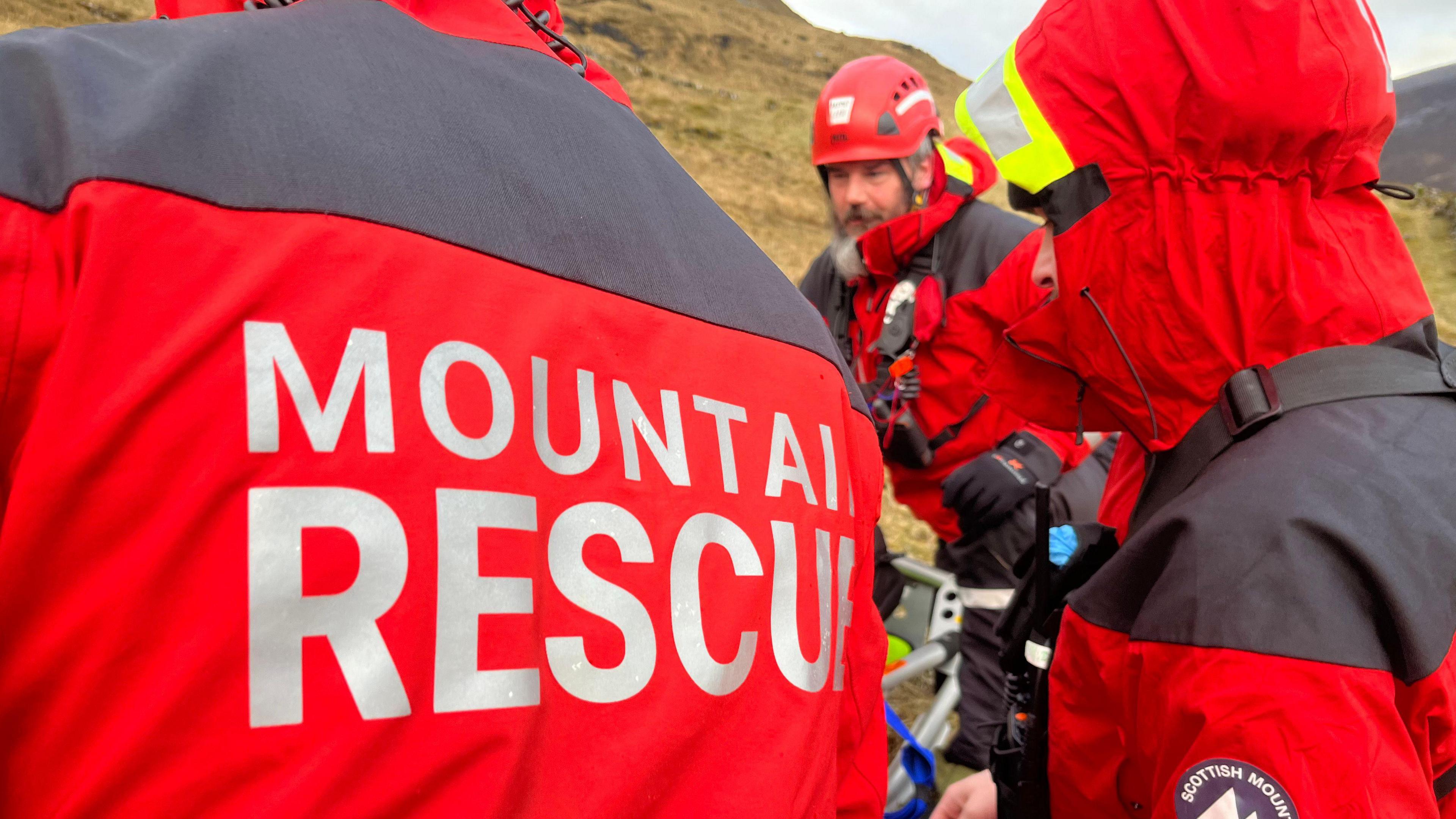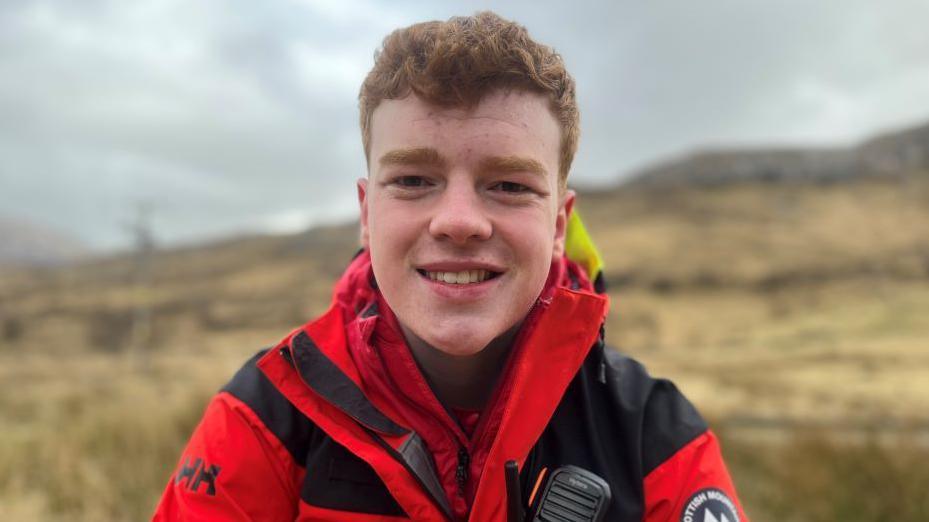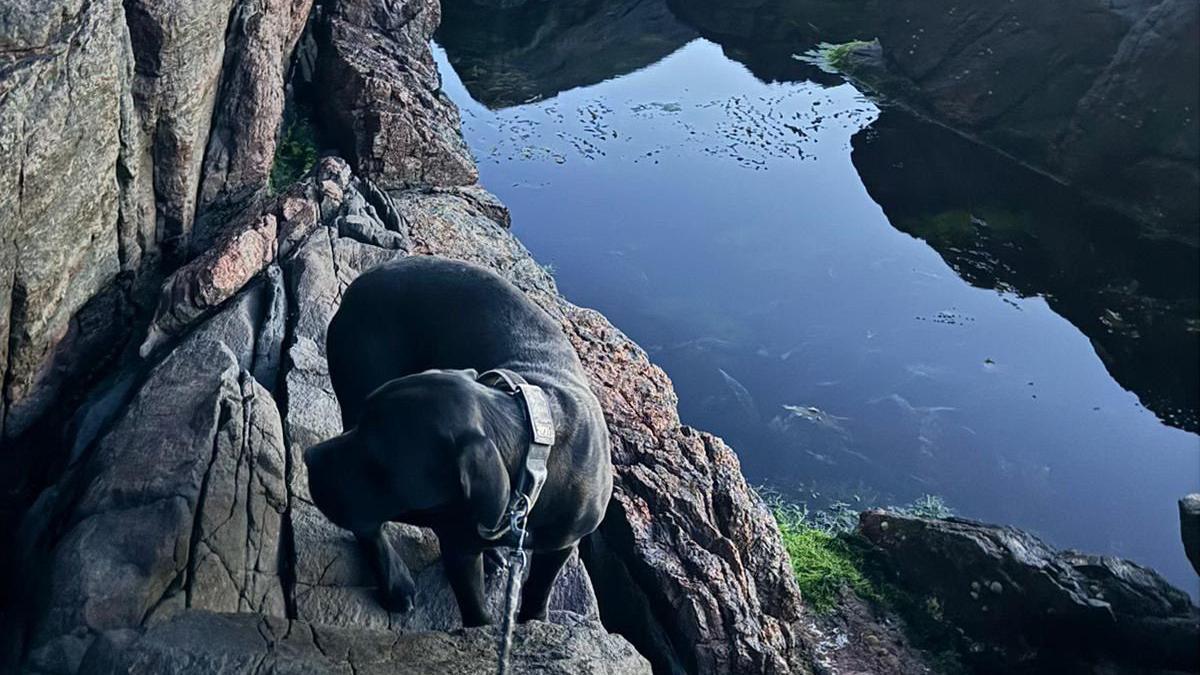Hillwalkers urged to think ahead after spike in call-outs

Assynt Mountain Rescue has one of the largest areas to cover in Scotland
- Published
A Highland mountain rescue team has urged walkers to take adequate precautions before they hit the hills, following an increase in call-outs.
Assynt Mountain Rescue Team (MRT), which covers about 2,600 square miles (7,500 sq km) in the north of Scotland, recorded 28 incidents last year - up from 17 in 2023.
And so far in 2025, the team of 36 volunteers have responded to 17 call-outs across the huge patch which covers Caithness and Sutherland.
Team leader Ben Dyson said some walkers and climbers were being caught out by Scotland's unpredictable weather - in summer and winter.
Mr Dyson told BBC Radio's Good Morning Scotland programme that there had been an increase in the number of visitors to the far north since the Covid lockdown.
"It's good to see more folk getting out and enjoying the hills," he added.
"In this ever increasing digital world, it's nice that people are actually getting out and enjoying the amazing landscape that we have here in Scotland."
He said colleagues in other mountain rescue teams were reporting more instances of people suffering from the effects of the heat on the hills.
"We always talk about the risk of hypothermia in the Scottish mountains but hyperthermia (ie heat illness) is something that is quite rarely encountered but is something that is now becoming more of a risk."
Mr Dyson added that it was something that could be exacerbated by certain types of medication.
"If you're taking things like beta-blockers, diuretics, antihistamines, they can make it difficult for your body to regulate its own temperature so that does put you at higher risk," he said.
But cooler conditions at high altitude remain a risk in the summer.
"You shouldn't forget that when you're down in the car park and it's a lovely day - 12 or 13C in spring - that for every 100m of altitude gained, you might lose about a degree of temperature, and that's without the wind chill," he said.
"So on top of some of Scotland's mountains you could be getting close to freezing."
He said it was important to prepare for all eventualities.
"It's not just about taking the warm clothes these days, it about making sure you've got enough water as well.
"Plan the timing you're going into the hills. So on a summer's day like we've been getting recently, between 11am and 3pm when the sun's at its strongest, perhaps timing your journey to go out early or perhaps a little later in the day."
He urged walkers to ask themselves what happens if something goes wrong?
"What happens if I twist my ankle or all of a sudden I'm unable to walk, how am I going to communicate with the outside world?," he said.
And he strongly recommended people take an emergency locator beacon with them on excursions into the mountains.
He said Assynt Mountain Rescue Team, external cumulatively volunteer about 6,000 hours a year, on top of their day jobs and family life.
A registered charity, it receives a grant from the Scottish government and assistance from Police Scotland but the majority of its funding comes from donations from the public.
Last year mountain rescue teams across Scotland responded to 1,000 call-outs, according to the Scottish Mountain Rescue annual review., external
Related topics
- Published17 March 2024

- Published16 July 2024
